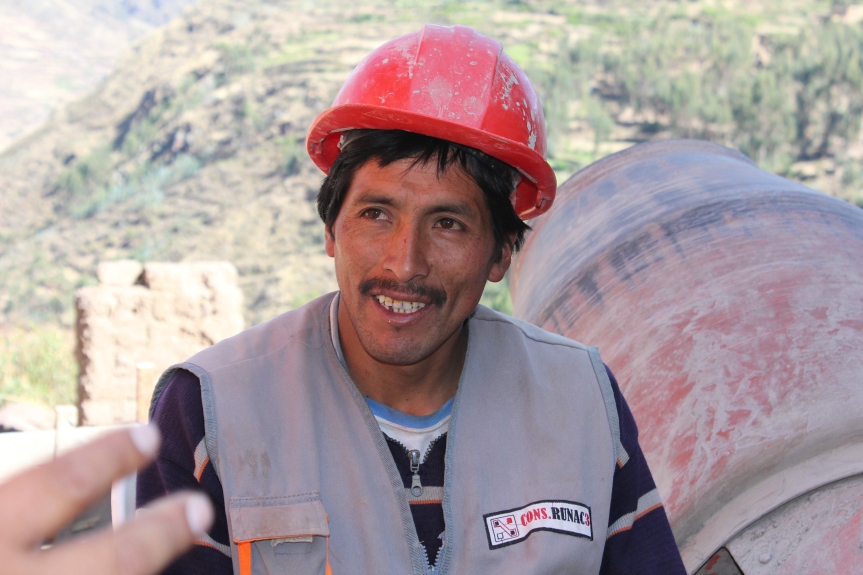Yesterday was an interesting day. We had filmed some interviews over a week ago but since they are in a different language I didn’t know what anyone was saying. When Yieber and I translated the clips, actually he translated while I typed, and I finally got to hear what they were sharing.

This film has been an intriguing challenge for so many reasons. First there is the language barrier; I had to learn to interview people without being the person asking the questions. Then we have financial restrictions; i.e. an incredibly limited budget. Combine that with remote locations, rainy season and high altitude, well… it´s a good thing I like a challenge.
Making sure that I understand clearly what the subjects are saying can sometimes be tricky. Yieber and I end up in discussion over the correct meaning of a word, or how the same word can be used in different ways and have completely different meanings. He speaks English as a third language and when I explain the specifics of a definition at times I even get confused myself. Words like those are called contronyms.
I found a great list and explanation of them on MentalFloss.com These are words that are their own opposites.
Here’s an ambiguous sentence for you: “Because of the agency’s oversight, the corporation’s behavior was sanctioned.” Does that mean, ‘Because the agency oversaw the company’s behavior, they imposed a penalty for some transgression’ or does it mean, ‘Because the agency was inattentive, they overlooked the misbehavior and gave it their approval by default’? We’ve stumbled into the looking-glass world of “contronyms”—words that are their own antonyms.
1. Sanction (via French, from Latin sanctio(n-), from sancire ‘ratify,’) can mean ‘give official permission or approval for (an action)’ or conversely, ‘impose a penalty on.’
*
2. Oversight is the noun form of two verbs with contrary meanings, “oversee” and “overlook.” “Oversee,” from Old English ofersēon ‘look at from above,’ means ‘supervise’ (medieval Latin for the same thing: super- ‘over’ + videre ‘to see.’) “Overlook” usually means the opposite: ‘to fail to see or observe; to pass over without noticing; to disregard, ignore.’
*
3. Left can mean either remaining or departed. If the gentlemen have withdrawn to the drawing room for after-dinner cigars, who’s left? (The gentlemen have left and the ladies are left.)
*
4. Dust, along with the next two words, is a noun turned into a verb meaning either to add or to remove the thing in question. Only the context will tell you which it is. When you dust are you applying dust or removing it? It depends whether you’re dusting the crops or the furniture.
*
5. Seed can also go either way. If you seed the lawn you add seeds, but if you seed a tomato you remove them…. more
So, as you can see, translation from one language to another can be complicated. In Quechuan there are expressions that make no sense in English, the same can be said with Spanish. The trick is in finding the nuance and true meaning of what someone is saying and capture that essence as accurately as possible.
But with all the obstacles comes surprises and rewards. I have the honor of meeting and working with some truly incredible people. I am learning more than I ever could have bargained for and with luck I can translate/transmute/transfer that information clearly into the film.
